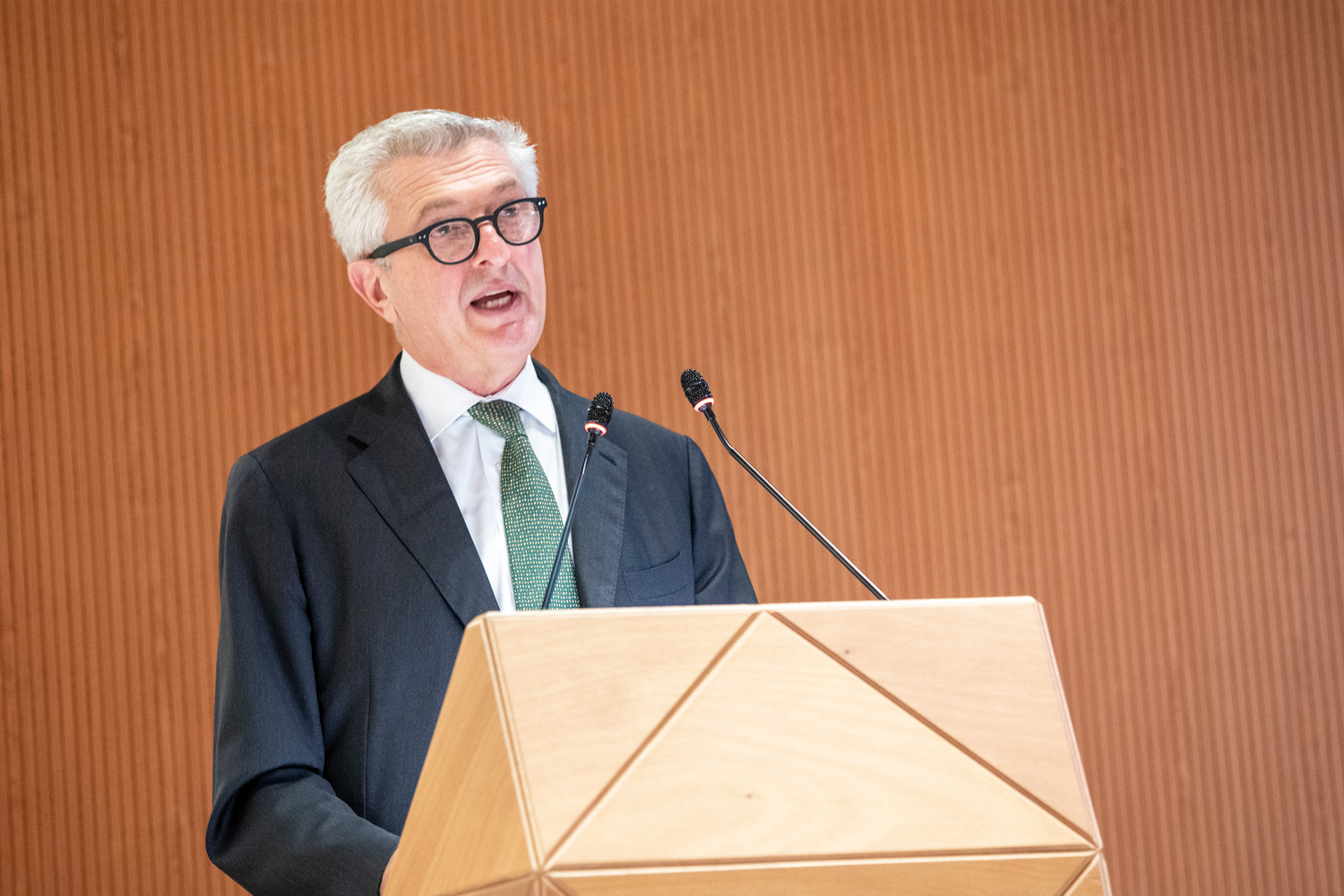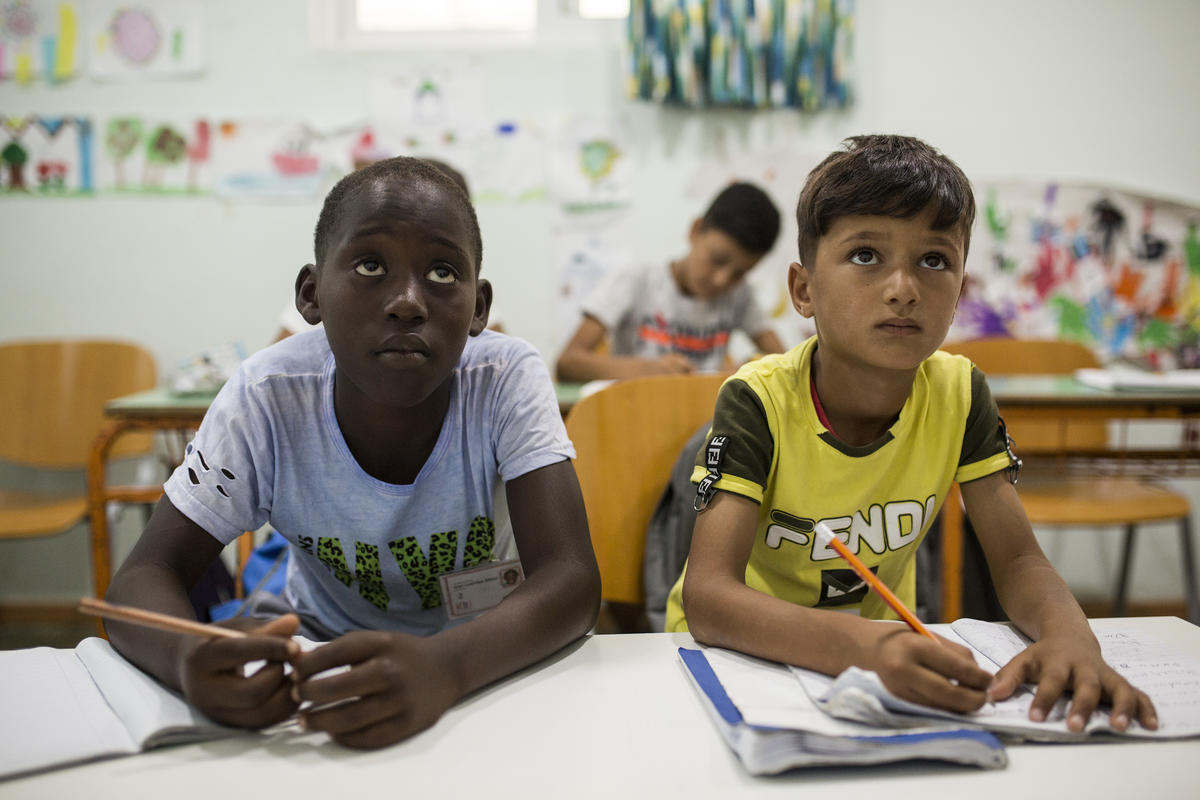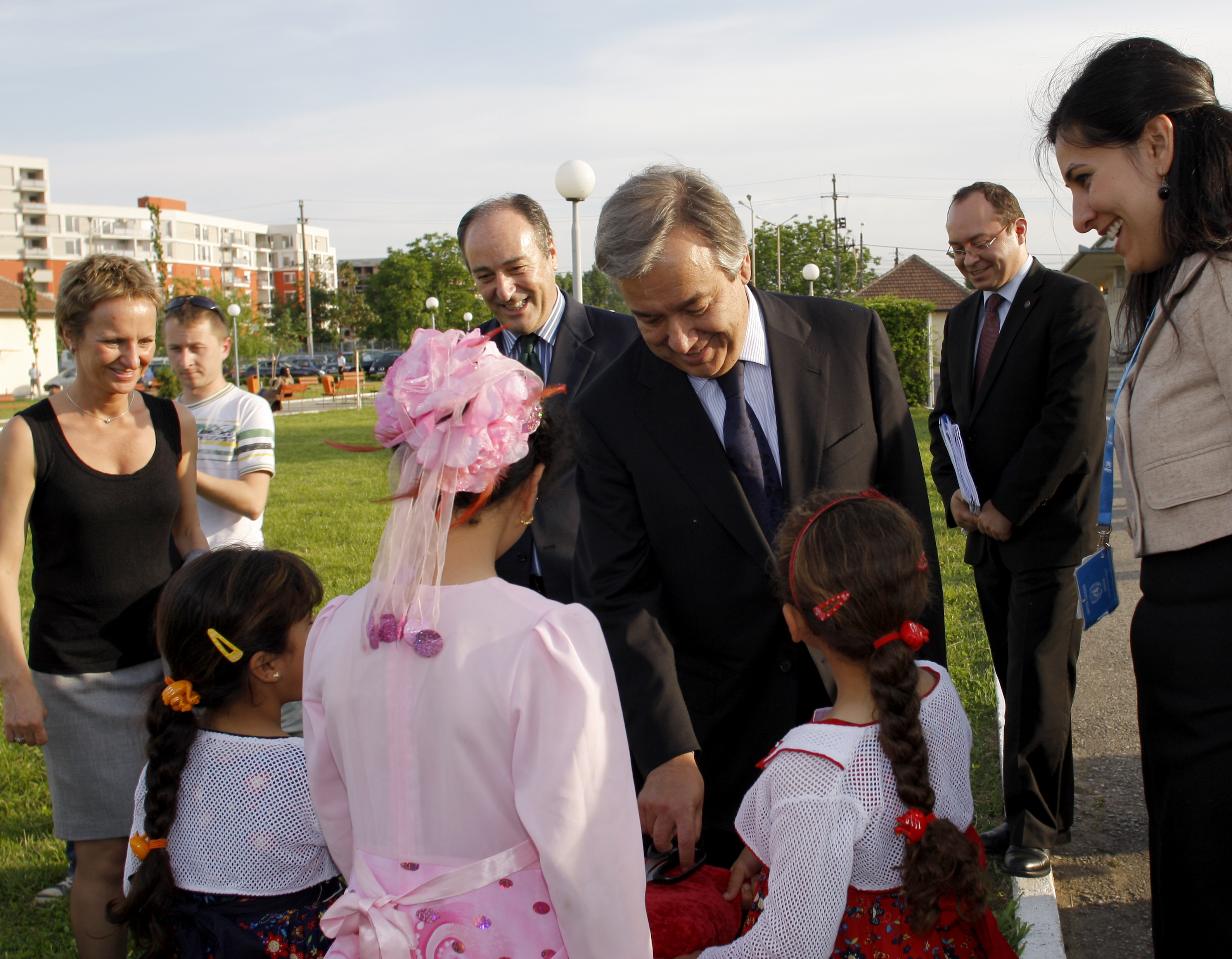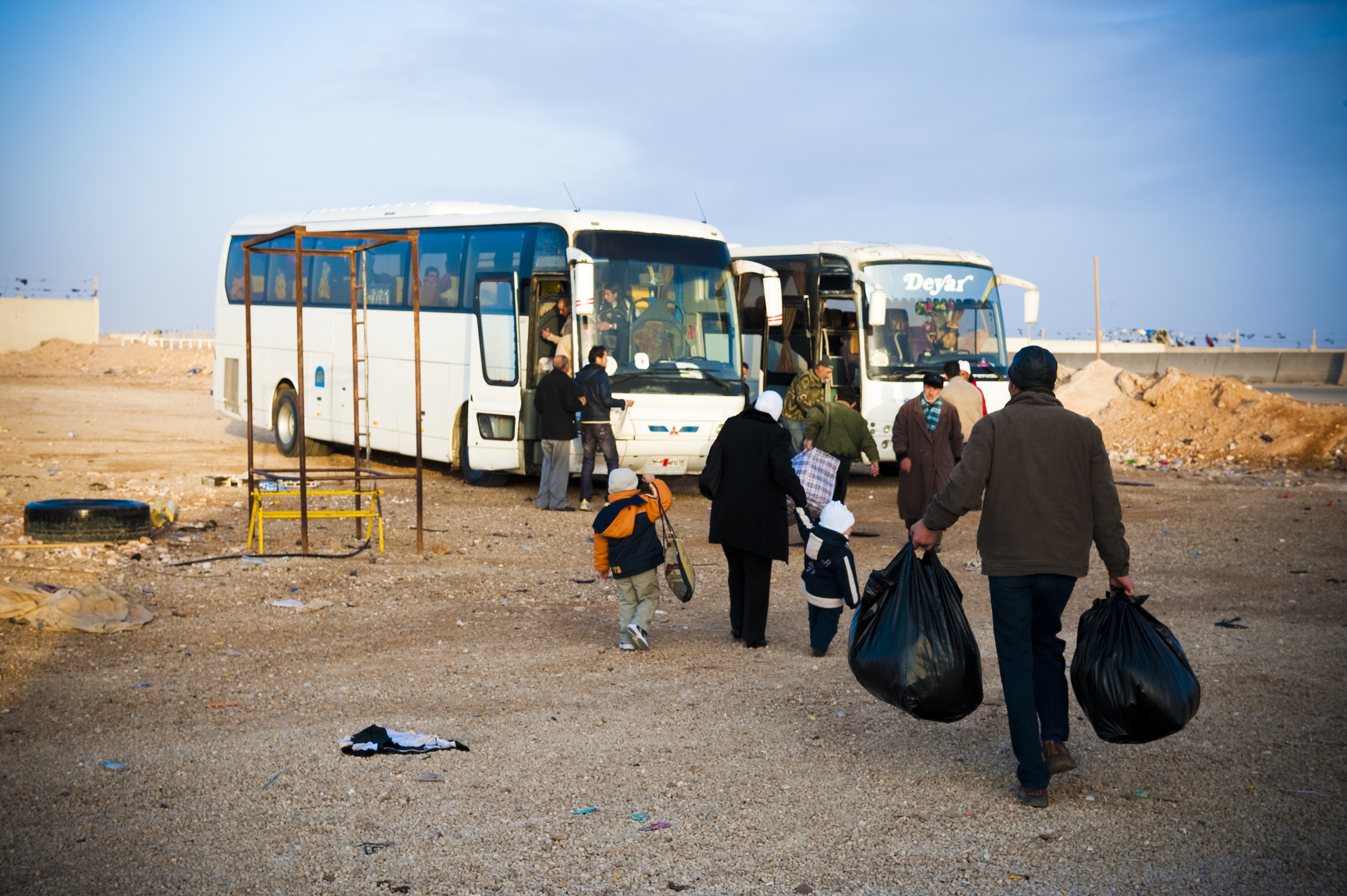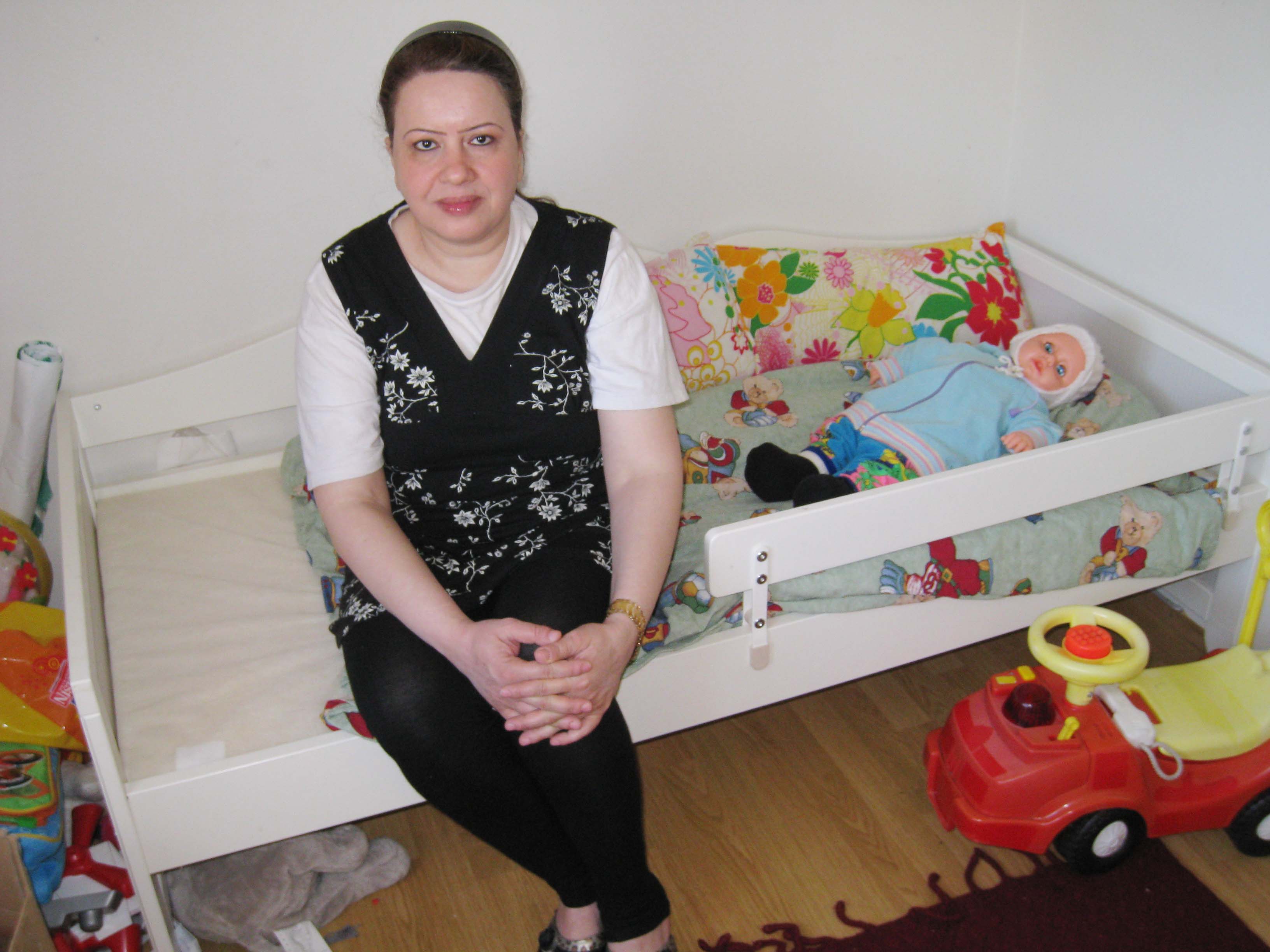Resettled Palestinian refugees arrive in Iceland
Resettled Palestinian refugees arrive in Iceland
A group of 29 Palestinian women and children refugees who spent the past two and a half years in a makeshift desert camp on the Iraq-Syria border arrived last night in Reykjavik, Iceland, to begin a new life. The group consists of eight families headed by women, several of whom lost their husbands during the conflict in Iraq.
Upon arrival, the 29 Palestinians were taken by bus to the town of Akranes about an hour's drive north of the capital, where furnished apartments had been prepared for them. Over the next weeks, the refugees will undergo orientation, preparation of identity papers and thorough medical checkups. The refugees will receive financial support, housing and counselling from the local municipality. The children will start school and their mothers will attend language courses take classes on Icelandic society and culture. They will also receive job training.
Each refugee family will have a support network of three or four local families, who have been trained by the Icelandic Red Cross.
Given their vulnerability, UNHCR considered resettlement to be their only option. Iceland takes 25-30 refugees for resettlement annually and in recent years has focused in particular on resettling single women and single mothers with their children. Iceland has resettled 277 refugees through UNHCR since 1996. In previous years, it has resettled Colombians and refugees from the Balkans
Al Waleed and Al Tanf desert camps on the Iraq-Syria border are home to over 2,300 Palestinians who are still living in desperate conditions after fleeing from Baghdad. UNHCR has repeatedly called for international support for the Palestinians, but with few results. Only a small number of Palestinians in the border camps have been accepted for resettlement in non-traditional resettlement countries like Chile and Brazil, while a few medical cases were taken up by European countries. This is however a fraction of the remaining population in the camps.

